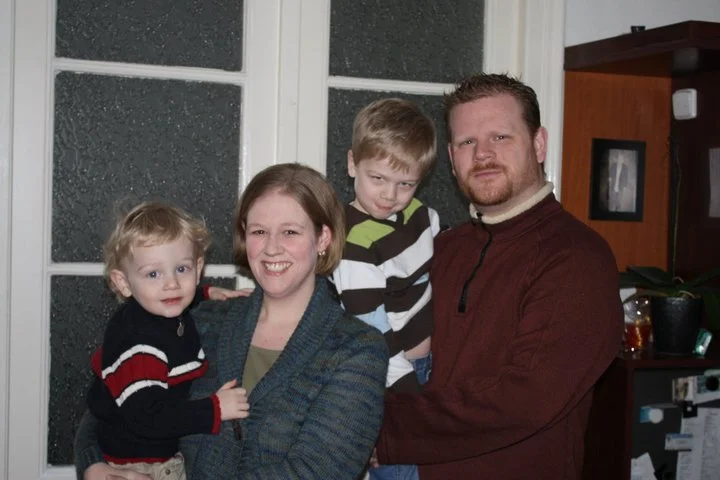Covid-Culture Shock
About 11 years ago, my family moved to Hungary (see cover photo for the throwback). Arriving on the field was exciting. Everything was so new. We had a flurry of fun activities, picking out cell phones and outfitting our new apartment. Our first few months were full of busy activities that allowed us to be creative. We thrived on the adventure that was setting up a new life overseas. We quickly became big fans of public transportation. We found our favorite local restaurants and parks and embraced a new rhythm of life. Those first few months were awesome.
About four months in, things started to change. While I was a big fan of public transportation, the walk to and from the stop were starting to get annoying. Also, the fun was pretty much drained out of trying to communicate with people who spoke a limited amount of English. While we were enthralled with all the little differences in our life at first— from our new Hungarian friends, to our new coffee-maker—suddenly the differences seemed weighty. For those of you who have lived overseas, you know what was going on. We had entered ‘culture shock.’
Culture shock is not the ‘shock’ of the differences in culture. Rather, it is the gradual breaking of your addiction to your ‘old-life.’ Probably didn’t know you were an addict, eh? Suddenly I missed my old car, which I could drive without waiting for a bus and then walking home the few blocks from the stop. I originally thought it was fun working out of our living room, but man, that old office was a great way to get work done and not be constantly distracted by toddlers, or asked by my well-meaning wife to try to get something down from a high place in the middle of a project. I even missed my barista, Michael (nobody made a latte like he did). My new guy was nice and all, but Michael was the best.
This is culture shock. It’s your mind and emotions adjusting from the old life to the new life. Your cultural elasticity is shot, and you’re ready for the ‘hit’ of home…but you’re not going home. For three to six weeks, we lived in a bit of a cloud. We were sometimes moody and sometimes sad. Culture shock wasn’t fun, but we got through it. We thought we’d never have to go through that again!!
This March, our team went on lockdown here in Hungary. We began working from home, only leaving if we had to at prescribed times. Suddenly, our normal routine meetings were virtual. My social life became mostly text messages and occasional video calls. We felt a sense of being ill-at-ease when we left home. We weren’t sure of the rules when we went into the grocery store. We wore masks and gloves, then just masks. We sanitized our groceries until the government said we didn’t need to. Every day brought something different, a new stress, a new unknown. Then the cloud set in.
We couldn’t seem to think clearly anymore. We just wanted to go get in the car, go through a drive-through, or go get one of Michael’s lattes. I wanted to just hang out with someone without wondering who they’d hung out with within the last 14 days. Our visit to the local gas station, which used to include a nice short chat with the attendant that always ended in a smile, was replaced with a Plexiglas shield and a hospital mask.
One evening, my wife and I were chatting about how we felt so incapable of operating normally, and that was when she said, “It feels like culture shock.” Then it hit me, it is culture shock!
Culture is all of the spoken and unspoken rules of a place. It’s the interactions and the way we operate, it’s our social lives and processes, the way we spend time with people and get things done. It’s a total transformation of your life. All at once, this crisis came into our lives and forced everything to change, almost as if we had entered another country, another culture. Suddenly, we didn’t know the rules, we felt stress in simple activities, everything was different. At first, we coped well, but sure enough, bang on cue, at three months, my cultural elasticity said “Ok, time’s up.”
Watching the news, it seems that this has happened to everyone. You see, culture shock makes you want to go home— you long for what was—and the transition leaves you feeling fatigued, annoyed, and generally regressing to teenage-hood. Suddenly, for a lot of people, it’s hard to stay in this new culture, to wear a mask, or even social distance when we should.
Can you identify with this? Have you wondered why you are or were feeling strung out, unsettled, and perhaps in a bit of a fog? That’s just your mind telling you that you’ve had enough of Covid-Culture. I get it, we felt it too. Here’s the good news, whether life goes back to normal, or whether things from here on out will always be a bit off, you will come out the other side. Like culture shock, eventually you will adjust. You’ll be alright.
Coming through culture shock a bit over 10 years ago was a great thing. It allowed us to see the world in a different way, and while the culture shock itself brought out some of our worst moments, the last ten years have brought out some of our best. My hope is that this Covid-culture shock will do the same. That we can take the best things from this time, and that we truly won’t go back to the way things were, but rather forge ahead with new eyes, and find something better.

